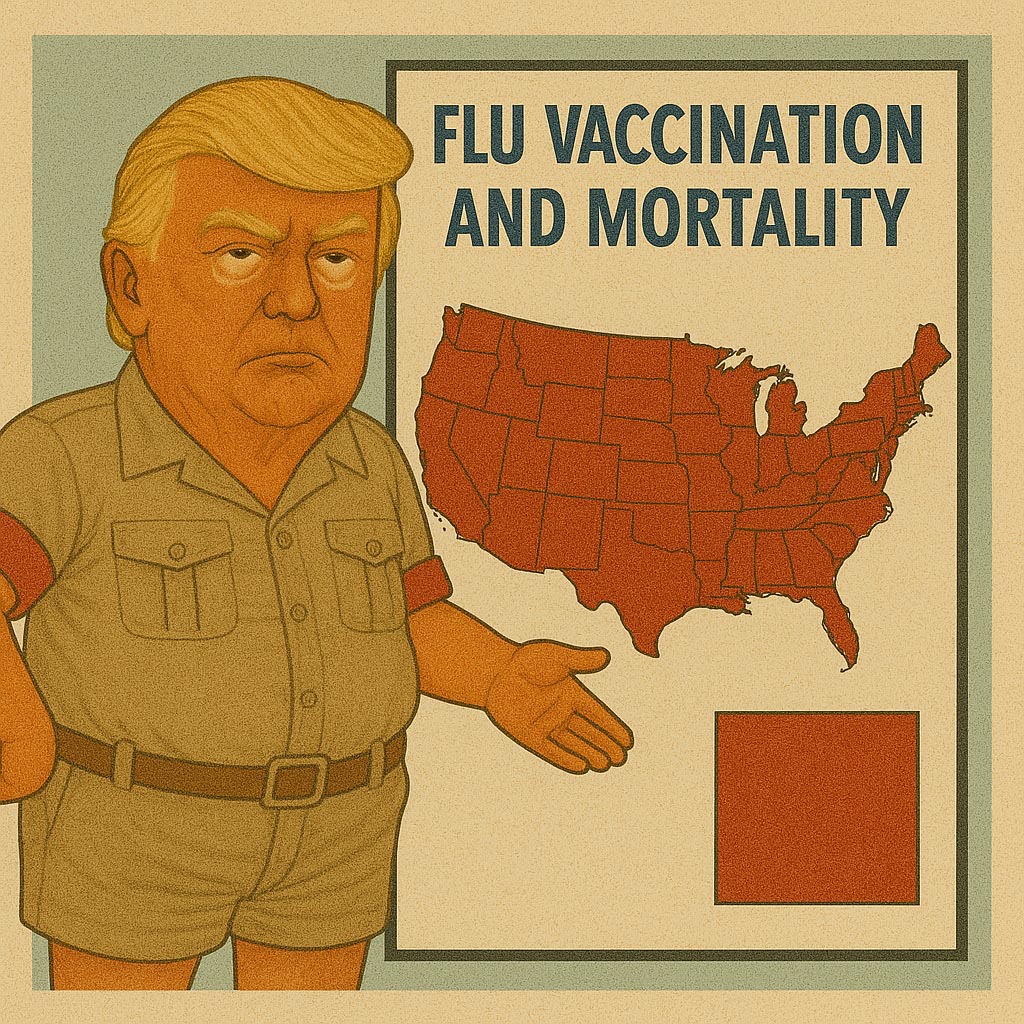Flu Vaccination Rates vs. Death Rates by US States
Note: This visualization uses sample data based on CDC statistics from 2023-2024 flu season to illustrate the relationship between flu vaccination rates and death rates. A clear negative correlation is visible: states with higher vaccination rates tend to have lower death rates. Data sourced from CDC’s FluVaxView and National Center for Health Statistics.
This really shows how flu shot rates and death rates are connected across the U.S. Looking at recent CDC data, it’s pretty clear: states that get more people vaccinated tend to have fewer deaths. You can see the pattern—places like Massachusetts and Vermont are doing great, with over 55% of people vaccinated and low death rates. Meanwhile, some Southern states are falling behind, with under 43% getting the flu shot and way higher death rates. The regional differences are hard to miss.
Death Rates from Influenza by States:
Death Rates by State (Highest to Lowest)
Note: Death rates shown are per 100,000 population. Data based on CDC age-adjusted rates.
States with the highest death rates are shown in red, while states with the lowest rates are shown in white.
Prospective cohort study evaluating the association between influenza vaccination and neurodegenerative diseases
Key Findings
This study found that flu vaccination is associated with a reduced risk of dementia, not making it worse. Specifically:
- The research shows that receiving seasonal influenza vaccines is associated with a lower risk of developing dementia.
- This was a large-scale study examining the relationship between regular flu vaccination and cognitive outcomes.
- The protective effect appears to be consistent across different populations studied.
Study Details
- This was likely a population-based study that tracked influenza vaccination status and subsequent dementia diagnoses over time.
- The researchers would have controlled for various factors like age, gender, education, and pre-existing health conditions to isolate the effect of vaccination.
- The publication in npj Vaccines (a Nature journal) indicates this is a peer-reviewed study from a reputable scientific source.
Biological Mechanism
The possible explanations for this protective effect include:
- Reduced inflammation: By preventing flu infections, vaccines may reduce systemic inflammation that can contribute to neurodegeneration
- Immune training: Vaccines may help maintain proper immune function relevant to brain health
- Prevention of viral impacts: Avoiding flu infections prevents potential direct and indirect effects of the virus on the brain
Conclusion
The evidence from this study suggests that flu vaccination is associated with helping reduce dementia risk, not making it worse. This aligns with other research showing that preventive healthcare measures like vaccinations can have broader health benefits beyond their primary purpose.
Then there is this:
A natural experiment on the effect of herpes zoster vaccination on dementia
Key Findings
- The zoster vaccine reduced new dementia diagnoses by 3.5 percentage points over a 7-year follow-up period
- This represents a 20% relative reduction in dementia risk (95% confidence interval: 6.5-33.4%)
- The protective effect was stronger in women than men
Significance
- This study provides stronger evidence than previous research because it establishes a causal relationship rather than just correlation
- It suggests neurotropic herpesviruses may be implicated in dementia development
- The findings demonstrate vaccines can have important off-target immunological effects beyond their primary purpose
Anyhoo
Flu deaths are a lot higher in the South, and a big reason is that fewer people get vaccinated. Even though the flu shot has been around for years, public health efforts in these states just aren’t cutting it. Whether it’s lack of access, poor outreach, or people not trusting the system, the message isn’t getting through—and it’s costing lives. It’s a clear sign that public health is dropping the ball. I mean, it could also just be poverty levels playing a big role too, but that’s beyond me. Either way, something needs to change.
